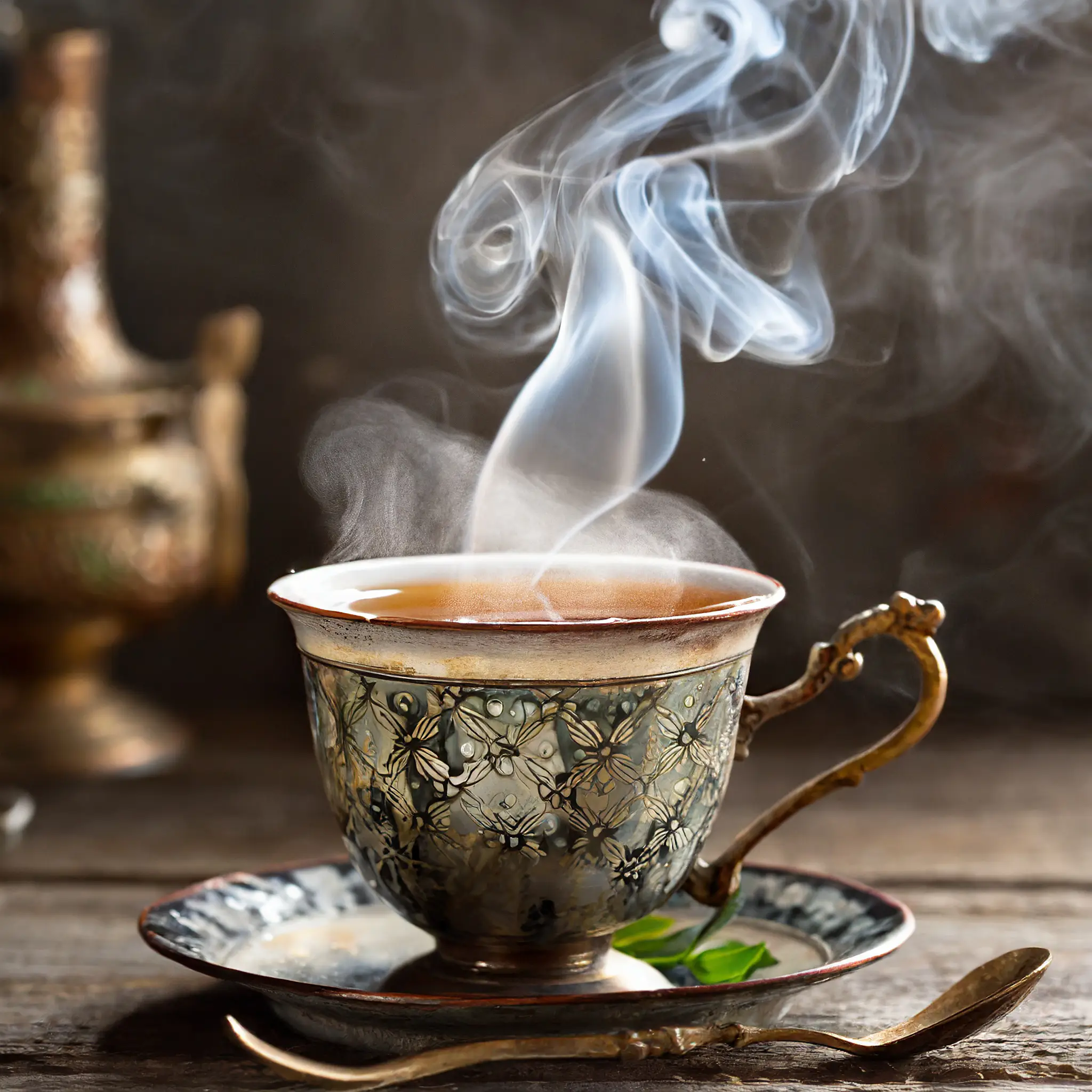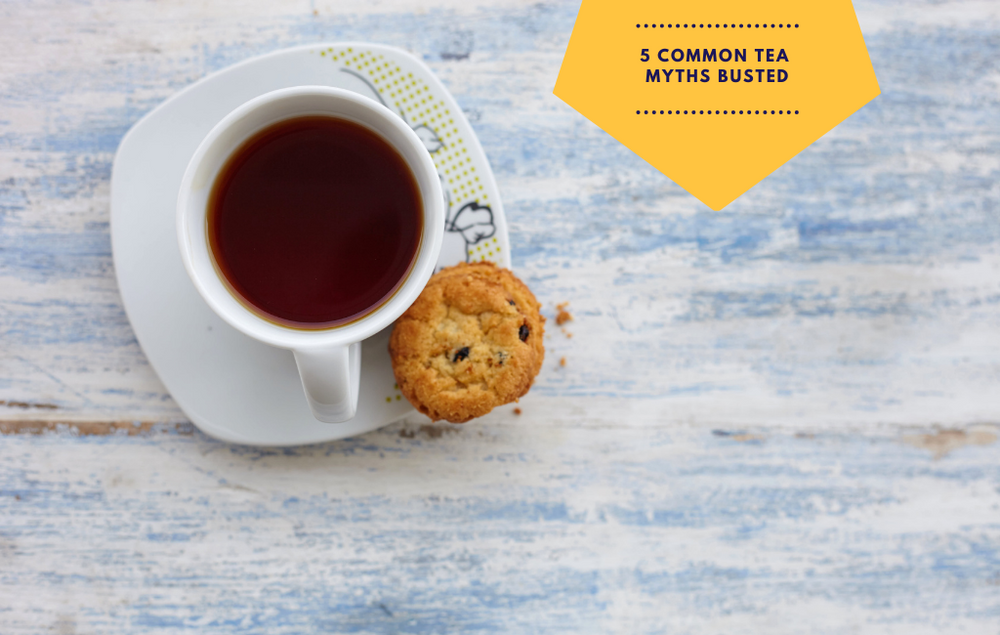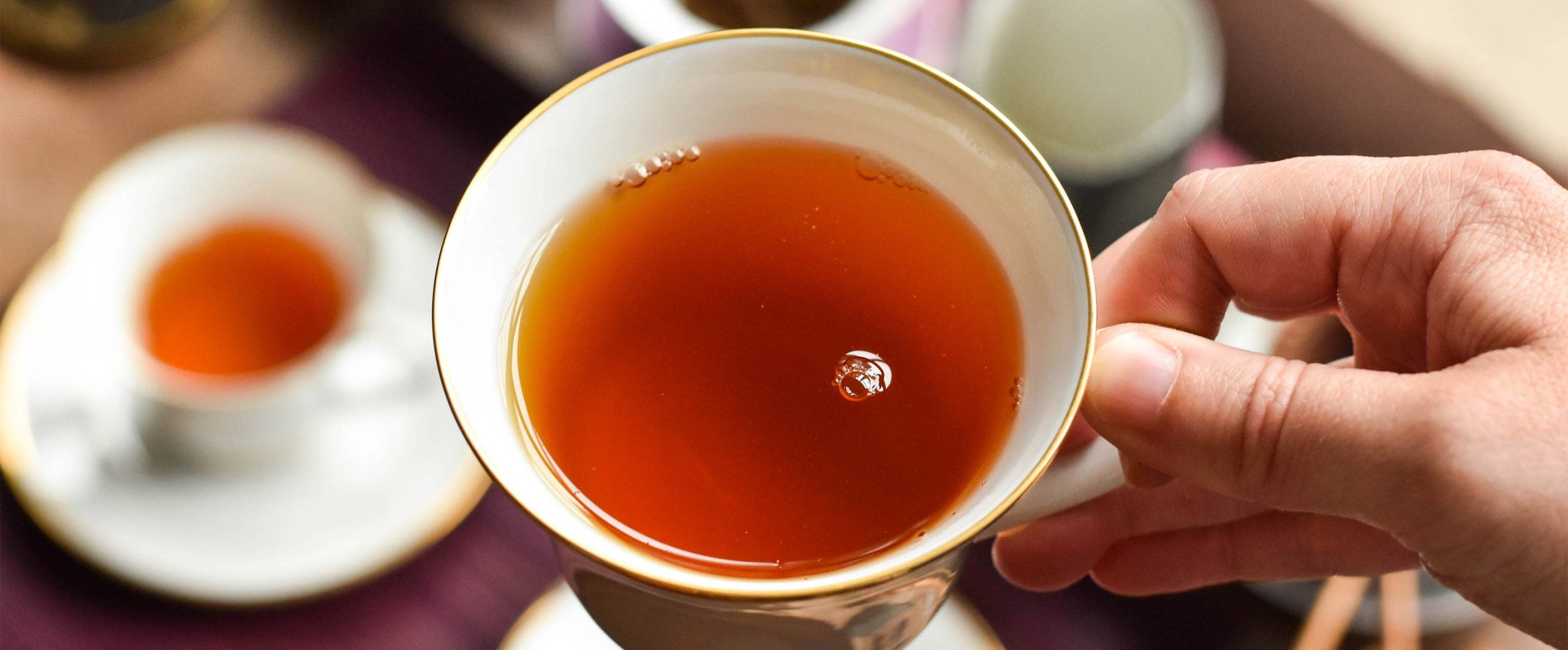Most herbal teas are naturally caffeine-free. Exceptions exist where specific herbs contain caffeine.
Herbal teas, encompassing a diverse range of flavors and health benefits, have been a go-to beverage for those seeking relaxation and wellness. Unlike traditional teas derived from the Camellia sinensis plant, such as black, green, or oolong tea, herbal teas are crafted from a variety of plants, herbs, and spices.
This difference in origin typically means they lack caffeine, making them an ideal choice for individuals looking to decrease their caffeine intake or enjoy a soothing cup before bedtime. With a broad spectrum to choose from, including chamomile, peppermint, and rooibos, herbal tea aficionados can savor a calming brew at any time without the concern of caffeine-induced sleep disturbances or jitters.
Myths Surrounding Herbal Tea And Caffeine
The debate about caffeine in herbal tea can get quite steamy. People love sipping on tea for its calming effect, often assuming it’s free of caffeine. Let’s debunk some myths and shed light on the truth about herbal tea and caffeine content.
Common Misconceptions
Myths cling to herbal teas like leaves to a tree.
- All ‘teas’ are from the tea plant. This is false; herbal teas usually come from various plants and herbs.
- Herbal tea is caffeine-free by default. Not always true! Some contain caffeine naturally.
- If it’s herbal, it’s good for sleep. Some herbs may actually perk you up, not calm you down.
The Reality Of Herbal Infusions
The truth about herbal infusions often gets lost in a forest of assumptions:
| Herbal Infusion | Caffeine Content |
|---|---|
| Chamomile | None |
| Peppermint | None |
| Yerba Mate | Contains Caffeine |
Real herbal teas, like chamomile and peppermint, have no caffeine. Yet, blends labeled as herbal might include tea leaves with natural caffeine. Always check labels carefully!
Remember, not all comfort in a cup is created equal!
Herbal Tea Ingredients And Their Caffeine Content
Exploring the caffeine content within herbal tea ingredients reveals a realm where not all teas are the same. Some offer the calming effects of a caffeine-free experience, while others might surprise you with hidden caffeine sources. Understanding the makeup of these herbal concoctions is crucial for those mindful of their caffeine intake.
Popular Herbs Without Caffeine
Many herbs renown for their soothing properties are naturally free of caffeine. These selections are perfect for evening relaxation or those sensitive to caffeine.
- Chamomile: Renowned for its sleep-inducing qualities.
- Peppermint: Known for digestive benefits and a fresh flavor.
- Lemon Balm: Offers a citrusy note and stress relief.
- Hibiscus: Imparts a tart taste and vitamin C.
- Rooibos: A South African herb that mimics tea sans caffeine.
Unexpected Sources Of Caffeine In Herbal Blends
Certain herbal teas might sneak caffeine into your cup. Be vigilant about blend ingredients, particularly these common culprits.
| Herb | Caffeine Presence |
|---|---|
| Yerba Mate | High in caffeine, similar to coffee. |
| Guarana | Contains more caffeine than coffee beans. |
| Green Tea Leaves | Often included in blends, contain caffeine. |
The Science Of Caffeine In Plants
Plants and caffeine share a fascinating story. This natural compound, more formally known as 1,3,7-trimethylxanthine, isn’t just for keeping humans alert. In the world of plants, caffeine plays its own vital roles. Let’s uncover the science behind why plants produce caffeine and which herbal teas may surprise you with a caffeine kick.
Caffeine’s Role In Nature
Not all plants have caffeine, but those that do, use it smartly. Caffeine is a natural pesticide. It wards off pests trying to munch on leaves and seeds. This bitter-tasting compound can be a lifesaver for plants. Caffeine also lures pollinators. It gives them a buzz, making them more likely to return. Let’s break down these points:
- Natural pesticide: Caffeine deters harmful insects.
- Pollinator attractant: Bees love a caffeine hit too.
Why Some Herbs Contain Caffeine
Thinking of herbal tea might conjure up an image of a caffeine-free experience. Not always true. Some herbs naturally contain caffeine. These plants, like Yerba Mate and Guarana, use caffeine to their advantage. It’s a defense mechanism and a growth strategy. Check out which common herbs have caffeine:
| Herb | Caffeine Presence |
|---|---|
| Yerba Mate | Yes |
| Guarana | Yes |
| Camellia sinensis (Tea Plant) | Yes |
| Coffee Plants | Yes |
So, while not all herbal teas have caffeine, some certainly do. Look closely at the ingredients or consult with a doctor.

Decaffeinated Vs. Caffeine-free: Unveiling The Difference
Many tea lovers wonder about the caffeine content in their brew. It’s crucial to understand the labels ‘decaffeinated’ and ‘caffeine-free.’ These terms often create confusion, but the differences are distinct.
Decaffeination Processes
How is tea decaffeinated? It’s worth noting that decaffeinated does not mean devoid of caffeine. Several methods extract caffeine from leaves.
- Water – This gentle method retains maximum flavor.
- Carbon dioxide – High pressure extracts caffeine without chemical solvents.
- Organic solvents – Although effective, this method can raise health concerns.
Each procedure impacts the final taste and caffeine levels. None remove caffeine entirely.
Label Reading For Caffeine Content
Understanding labels plays a vital role in caffeine management.
| Term | Meaning |
|---|---|
| Decaffeinated | Reduced caffeine, not eliminated |
| Caffeine-Free | No caffeine from the start |
Herbal teas often fall into the caffeine-free category. Yet, always check labels.
For accurate information, look for specifics on the packaging. Terms like ‘naturally caffeine-free’ suggest a herbal origin.
Health Benefits And Considerations Of Herbal Tea
Herbal tea offers a myriad of health benefits, from improving digestion to reducing stress. Most herbal teas are naturally caffeine-free, making them an ideal choice for those seeking a soothing alternative to caffeinated beverages.
Herbal teas offer a bounty of health benefits, enticing enthusiasts and health-conscious individuals alike. Rich in vitamins, minerals, and antioxidants, they support a healthy lifestyle. Yet, understanding the caffeine content is crucial for those sensitive to stimulants or aiming for a caffeine-free diet. Most herbal teas are caffeine-free, making them a serene sip for any time of day.
Pros Of Going Caffeine-free
- Better sleep: Without caffeine’s stimulating effects, sleep quality may improve significantly.
- Reduced anxiety: Caffeine can heighten anxiety; elimination may offer calmness.
- No jitters or crashes: Skipping caffeine avoids the midday slump following a caffeine spike.
When Caffeine Can Be Beneficial
- Improved concentration: Caffeine can enhance focus and alertness in moderate amounts.
- Physical performance: It may increase endurance and reduce the perception of effort during exercise.
- Mental alertness: A moderate intake lifts brain fog and combats daytime drowsiness.

Crafting The Perfect Cup Of Caffeine-free Herbal Tea
Welcome to the serene journey of crafting the perfect cup of caffeine-free herbal tea. This aromatic indulgence is not just a beverage, but an art form that soothes the soul and refreshes the body. With the right blend of herbs and the perfect brewing technique, you can unlock the treasury of flavors that herbal teas have to offer, all without a trace of caffeine.
Selecting The Right Herbs
Finding the ideal herbs is the first step to a mesmerizing tea experience. Keep these tips in mind:
- Understand your needs: Do you want to relax, detox, or boost your immune system?
- Go for quality: Choose organic herbs to avoid pesticides and toxins.
- Experiment with blends: Mix different herbs to create unique flavors and health benefits.
- Check for allergies: Ensure you are not allergic to any components in the blend.
Brewing Techniques For Optimal Flavor
To extract the essence of the herbs fully, follow these brewing techniques:
- Use fresh, filtered water for the best taste.
- Heat water until just before boiling for delicate herbs.
- Steep time matters: Typically, 5-7 minutes. Too short, you’ll miss the flavor; too long could lead to bitterness.
- Cover your cup or teapot: This keeps all the flavors in.
Enjoy the full bouquet of flavors and therapeutic properties hidden in each leaf and flower, masterfully unleashed in your impeccable cup of herbal tea.

Frequently Asked Questions Of Does Herbal Tea Have Caffeine
Does All Herbal Tea Contain Caffeine?
No, most herbal teas do not contain caffeine. Herbal teas are made from a variety of plants, seeds, or roots that naturally lack caffeine. However, some blends might include tea leaves or other caffeinated ingredients, so it’s important to check product labels.
Can You Find Caffeine In Chamomile Tea?
Chamomile tea is naturally caffeine-free. It’s a popular herbal tea made from the flowers of the chamomile plant and is known for its calming properties, making it an ideal choice for relaxation and bedtime routines.
What Herbal Teas Have Natural Caffeine?
Yerba mate is one herbal tea that naturally contains caffeine. Other herbal teas like guayusa and guarana also have caffeine. These plants are known for their energizing effects and are often consumed for a natural energy boost.
How Much Caffeine Is In Herbal Tea?
Generally, true herbal teas contain no caffeine. However, if they are blended with leaves from the Camellia sinensis plant, such as black or green tea, the caffeine content can vary. Always read labels for exact caffeine levels.
Conclusion
Navigating the world of herbal teas can be complex regarding caffeine content. Many are naturally caffeine-free, yet some may contain traces due to their blend or processing. For those seeking a caffeine-free option or just curious about their favorite brews, it’s key to check labels and understand the specific herbs used.
By staying informed, you can enjoy the soothing benefits of herbal tea that align with your lifestyle and caffeine preferences.

